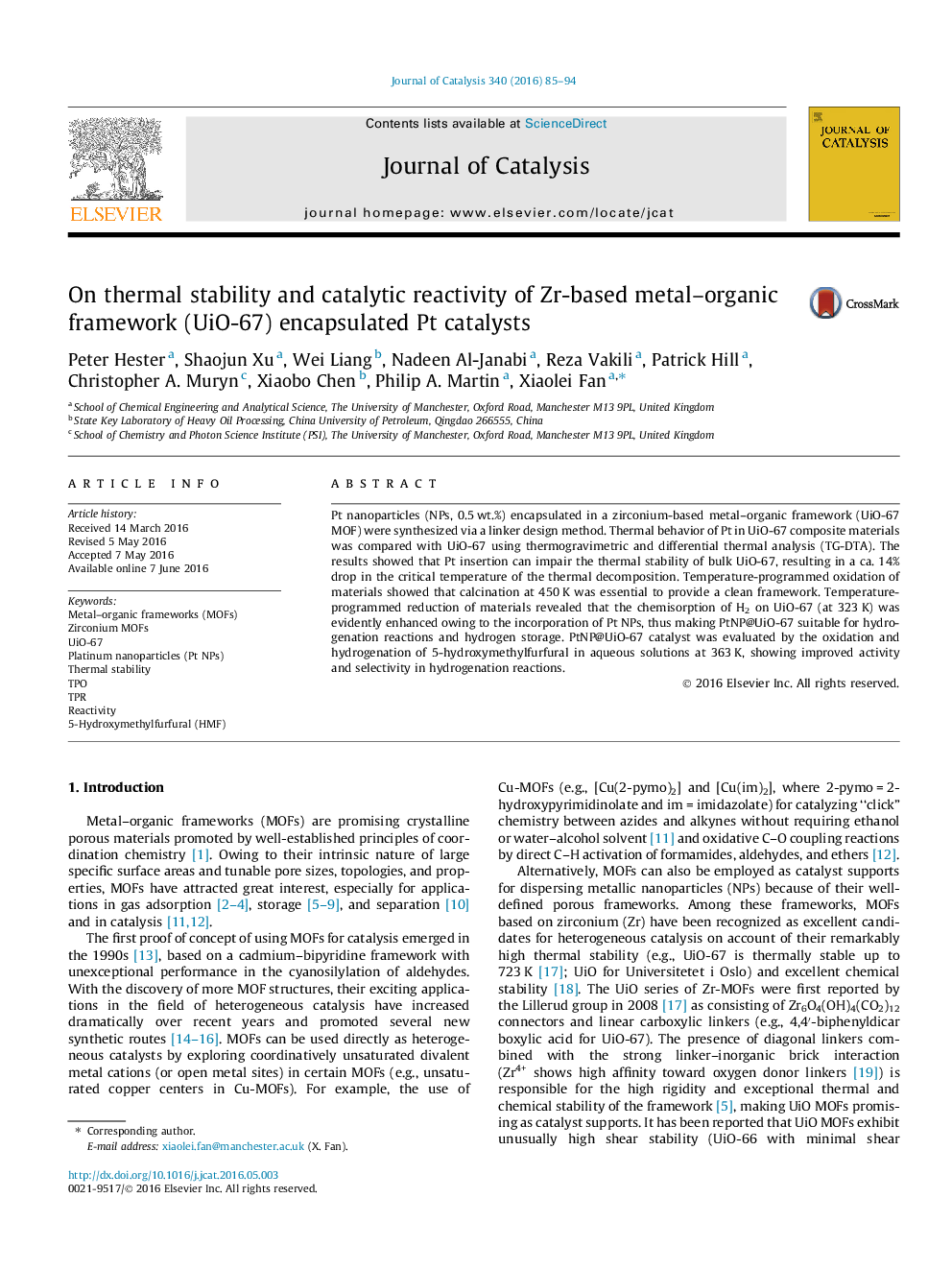| Article ID | Journal | Published Year | Pages | File Type |
|---|---|---|---|---|
| 60511 | Journal of Catalysis | 2016 | 10 Pages |
•Pt insertion decreases the thermal stability of the host UiO-67 MOF.•Encapsulated Pt nanoparticles enhance the capacity of UiO-67 for H2 adsorption.•PtNP@UiO-67 shows improved catalytic activity toward hydrogenation than oxidation.•PtNP@UiO-67 is robust and stable for catalysis at temperatures of <600 K.
Pt nanoparticles (NPs, 0.5 wt.%) encapsulated in a zirconium-based metal–organic framework (UiO-67 MOF) were synthesized via a linker design method. Thermal behavior of Pt in UiO-67 composite materials was compared with UiO-67 using thermogravimetric and differential thermal analysis (TG-DTA). The results showed that Pt insertion can impair the thermal stability of bulk UiO-67, resulting in a ca. 14% drop in the critical temperature of the thermal decomposition. Temperature-programmed oxidation of materials showed that calcination at 450 K was essential to provide a clean framework. Temperature-programmed reduction of materials revealed that the chemisorption of H2 on UiO-67 (at 323 K) was evidently enhanced owing to the incorporation of Pt NPs, thus making PtNP@UiO-67 suitable for hydrogenation reactions and hydrogen storage. PtNP@UiO-67 catalyst was evaluated by the oxidation and hydrogenation of 5-hydroxymethylfurfural in aqueous solutions at 363 K, showing improved activity and selectivity in hydrogenation reactions.
Graphical abstractFigure optionsDownload full-size imageDownload high-quality image (209 K)Download as PowerPoint slide
